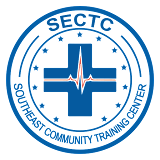American Heart Association Pediatric Advanced Life Support course
The American Heart Association Pediatric Advanced Life Support course is based on science evidence from the most current AHA Guidelines for CPR and ECC. The goal of the PALS certification course is to aid the pediatric healthcare provider in developing the knowledge and skills necessary to efficiently and effectively manage critically ill infants and children, resulting in improved outcomes. Skills taught in this first aid class include recognition and treatment of infants and children at risk for cardiopulmonary arrest; the systematic approach to pediatric assessment; effective respiratory management; defibrillation and synchronized cardioversion; intraosseous access and fluid bolus administration; and effective resuscitation team dynamics.
This course is designed for pediatricians, emergency physicians, family physicians, physician assistants, nurses, nurse practitioners, paramedics, respiratory therapists, and other healthcare providers who initiate and direct advanced life support in pediatric emergencies.
Per current AHA program administration guidelines, a BLS CPR card is NOT required for this course, but you must be proficient in child and infant BLS for healthcare provider skills and your skills will be reviewed and evaluated as part of the PALS Provider Course. BLS certification is not included with PALS course registration. Students that are not confident in their BLS CPR Skills should register for a CPR for Healthcare Provider Course prior to attending the PALS Course. Many PALS courses offered through Southeast Community Training Center include an option to renew your BLS/CPR for Healthcare Providers credential.
The American Heart Association strongly promotes knowledge and proficiency in BLS, ACLS, and PALS and has developed instructional materials for this purpose. Use of these materials in an educational course does not represent course sponsorship by the American Heart Association. Any fees charged for such a course, except for a portion of fees needed for AHA course material, do not represent income to the Association.

